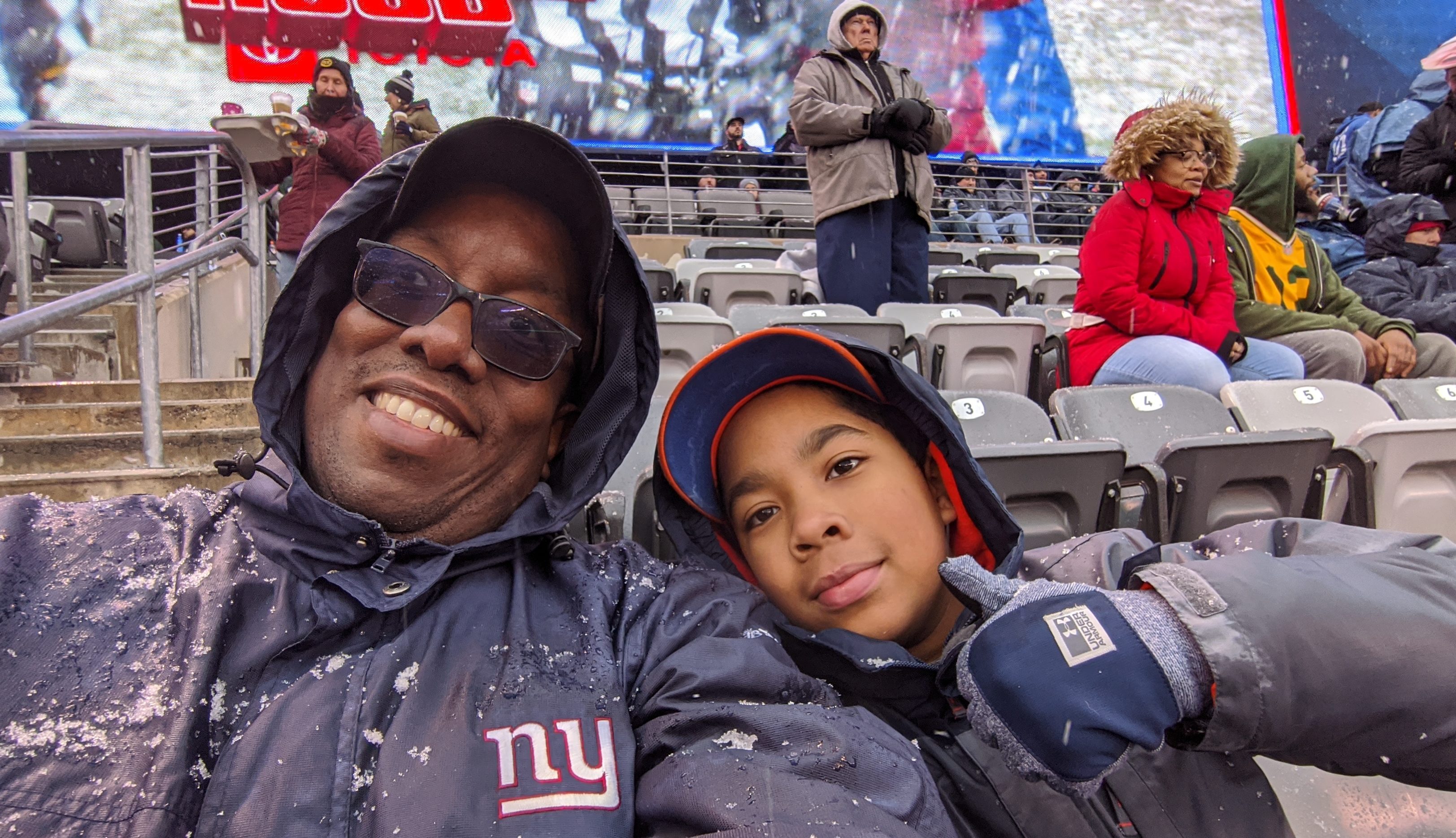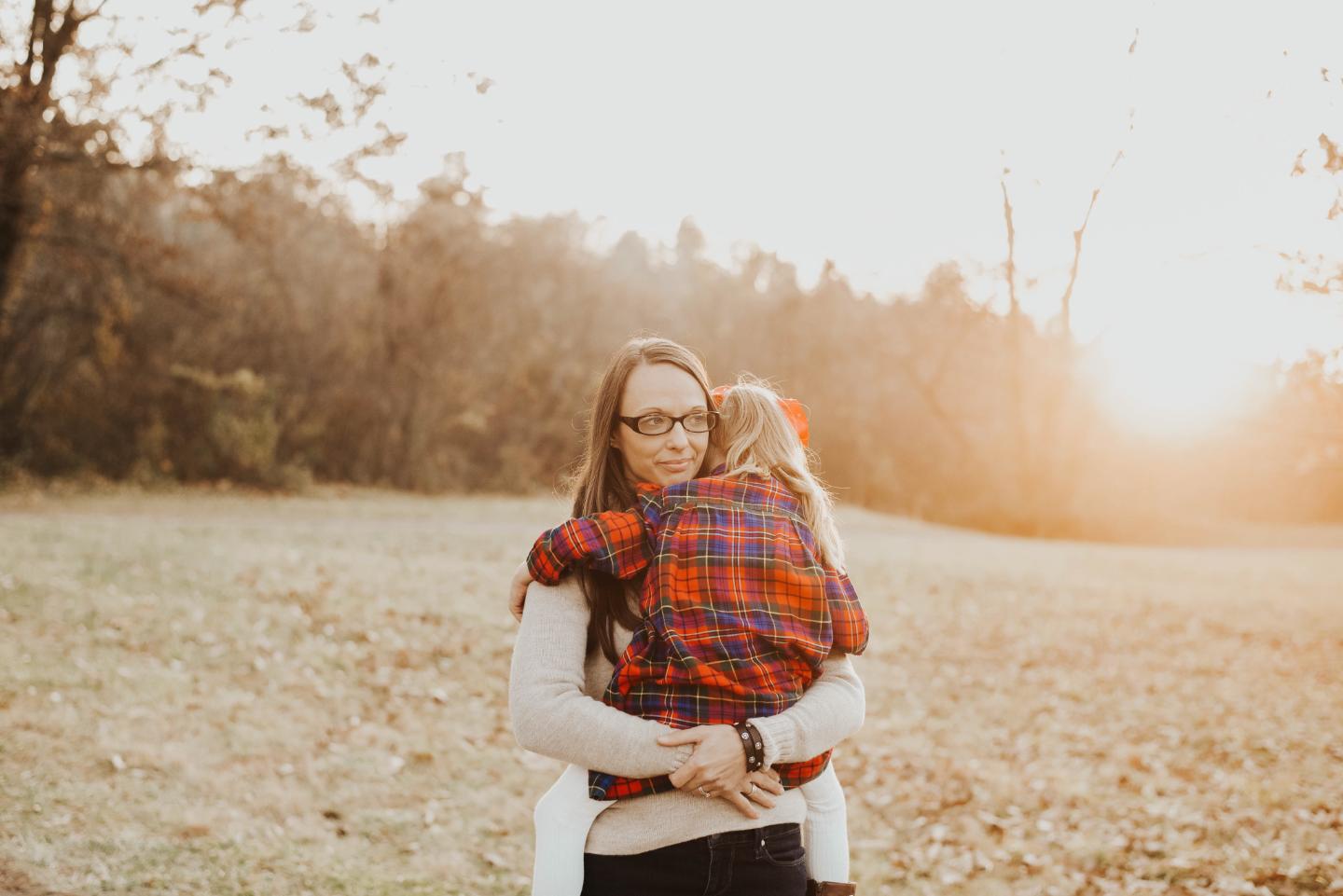
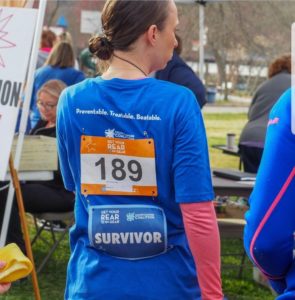 Holly Mchone was 38-years-old when diagnosed with stage III colon cancer in 2016. Although her process to recovery has been flawless in her eyes, the journey hasn’t been easy on her emotionally and mentally. She wants others to know to get screened early and to not go through it alone.
Holly Mchone was 38-years-old when diagnosed with stage III colon cancer in 2016. Although her process to recovery has been flawless in her eyes, the journey hasn’t been easy on her emotionally and mentally. She wants others to know to get screened early and to not go through it alone.
A mom of twins, she thought like new moms at the time that the bleeding she saw was from hemorrhoids. “My whole life I had issues with constipation, but I didn’t think that had anything to do with it. I can say, definitely now, that played a big part, but I was like that my whole life, so it seemed normal to me.” Holly felt no other symptoms, had no prior knowledge, and no family history for her to consider that the issues were from colon cancer. “I’ve always been really healthy.”
When she came out of her colonoscopy, her doctor told her there was a tumor and the chances it was cancerous was high. “I don’t think I spoke a word for the next five hours. I was shocked. My husband, at the time, was shocked. It was a lot to process.” Being parents of 2-year-old twins at the time, both were scared that cancer meant leading to death. “He thought he was going to lose me and take care of the twins by himself. After that I had a lot of anxiety.”
Holly learned to cope with the process during treatments, and her anxiety went away. “Everything went flawlessly. I had eight weeks of radiation and it was in conjunction with chemotherapy. By the time all of that was over, I went for my surgery in February 2017 and my doctor told me my cancer had already gone away. He said 25 percent of cases happen where the radiation kills the cancer.” Although the radiation has affected her reproductive organs, Holly feels lucky. “The chemo was hard, and I remember being nauseous, but I know other people had to go through more treatments than me.”
Even though her hospital visits were bringing good news, she still struggled emotionally and mentally. “I felt like I was going through that alone. Physically my husband, mom, and sister were 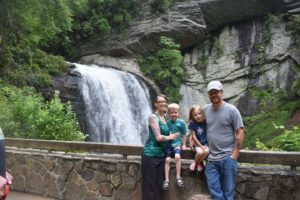 there, but emotionally, I was alone.” Holly went to all her treatments and doctor appointments on her own. “I couldn’t show that I was upset because my husband would be upset when I was. I couldn’t grieve the fact that I had cancer. I couldn’t deal with that unless I had that time on my own; to grieve to myself and deal with it.”
there, but emotionally, I was alone.” Holly went to all her treatments and doctor appointments on her own. “I couldn’t show that I was upset because my husband would be upset when I was. I couldn’t grieve the fact that I had cancer. I couldn’t deal with that unless I had that time on my own; to grieve to myself and deal with it.”
She knows now that if she had the support system to help her emotionally cope with her diagnosis, days would have been better. Holly never had the opportunities to join survivor support groups. She had to homeschool her children while they were in preschool. “When I was going through radiation treatments, I was told that the germs they could bring home wouldn’t be good for me, and my immune system would be compromised.”
Holly also struggled heavily with her ileostomy. “Seeing your intestines stick out of your body, it’s really hard. And to take care of it and make sure I’m doing all the right things, not getting dehydrated, and staying well; it was difficult for me. Emotionally, it was hard because it was something I didn’t want. I struggled.” The ileostomy reversal also proved to be difficult when she found herself having to cope with how to re-use her bowels again. “I’m still learning that. It’s been four years, but it’s still changing. The process of all of it takes a while to feel normal again.”
Things are looking well for Holly, but she still worries. Cancerous polyps were removed during a recent colonoscopy in early 2020. Although previous colonoscopies and CT scans were clear, this visit showed the polyps had returned in the same spots as her tumor. “The polyps don’t worry me much. I worry about the cancer coming back and spreading to my lungs.”
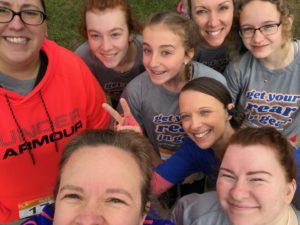 Holly hopes to reach out to another young person to get screened early. “I want them to understand that it’s okay to have issues, but to see a doctor as soon as there is one. Don’t wait and wait. If I had gone to the doctor five years prior, I wouldn’t have had to go through the radiation, chemo, and surgery. At that point, they would’ve gone in and plucked the polyps out and I would’ve been done with it.” She doesn’t want others to be ashamed or embarrassed talking about problems of their bodies. She knows that it’s hard to be vulnerable and try to walk away with pride. “I want others to know it’s okay to do that because it saves your life to get checked. I also want people to know that there are groups and to talk to people about how you feel. You don’t have to go through it by yourself like I chose to.”
Holly hopes to reach out to another young person to get screened early. “I want them to understand that it’s okay to have issues, but to see a doctor as soon as there is one. Don’t wait and wait. If I had gone to the doctor five years prior, I wouldn’t have had to go through the radiation, chemo, and surgery. At that point, they would’ve gone in and plucked the polyps out and I would’ve been done with it.” She doesn’t want others to be ashamed or embarrassed talking about problems of their bodies. She knows that it’s hard to be vulnerable and try to walk away with pride. “I want others to know it’s okay to do that because it saves your life to get checked. I also want people to know that there are groups and to talk to people about how you feel. You don’t have to go through it by yourself like I chose to.”
Since her experience, Holly made her parents get colonoscopies, and her sister is scheduled for one. “Any chance I get, I’m always badgering people to go get checked.” She had genetic testing done, but the results were negative. The geneticist told her the cancer was entirely environmental. “It’s harder for younger people because so many say, ‘It can’t happen to you, you’re so young.’ But it’s happening more and more to younger people. It’s not just when you’re over 50. It can happen any time. I don’t think there’s a rhyme or reason for it.” Holly hopes that she can be an example that it can happen to anyone. “Get checked. If you think there’s a problem, just get checked.”
RETURN TO FACES OF BLUE LEARN MORE ABOUT YOUNG ONSET COLORECTAL CANCER GET YOUR REAR IN GEAR - ASHEVILLE

